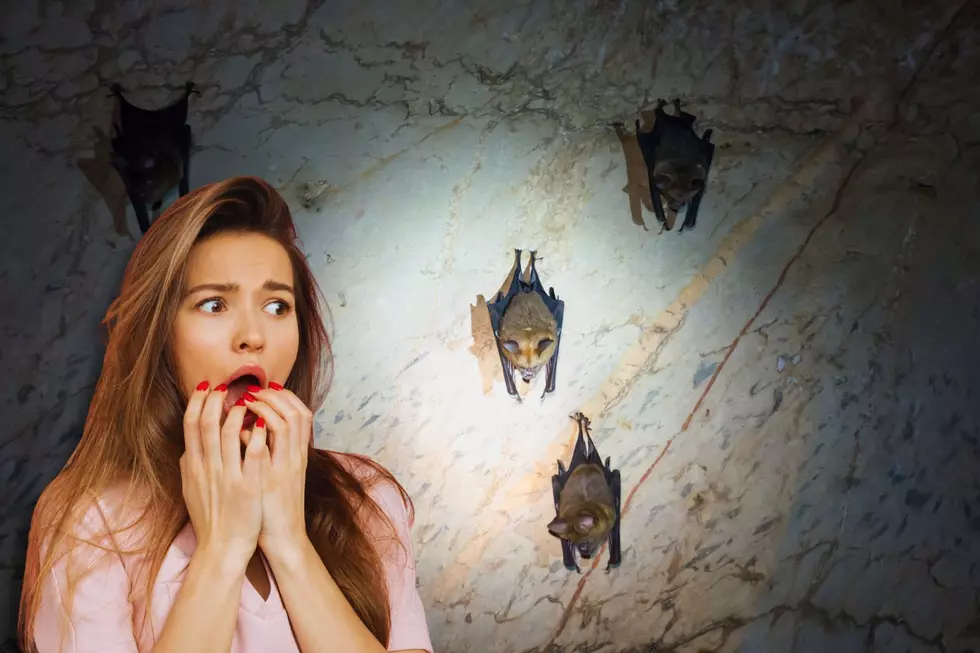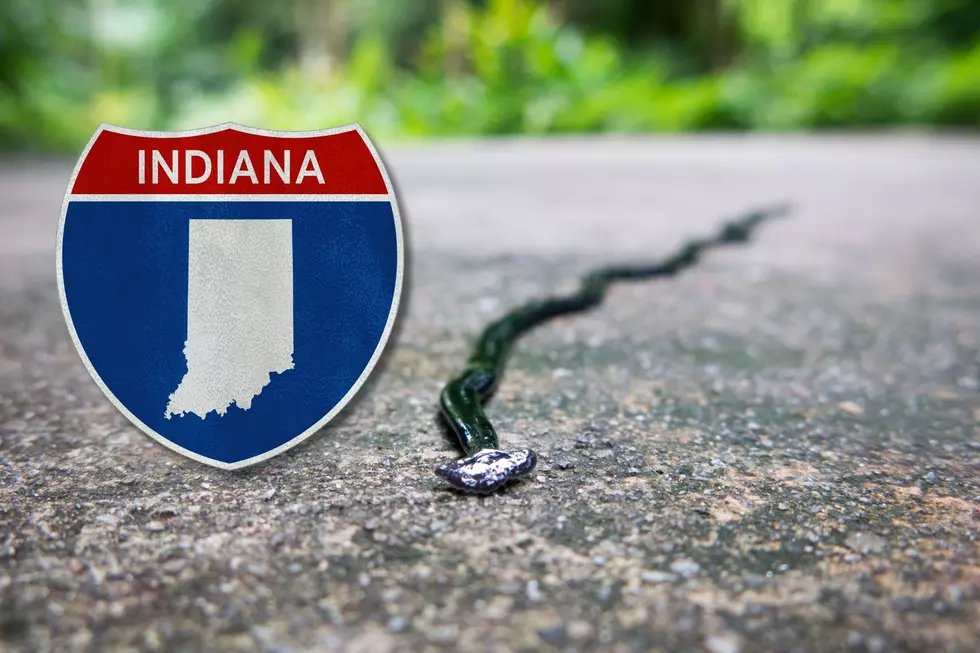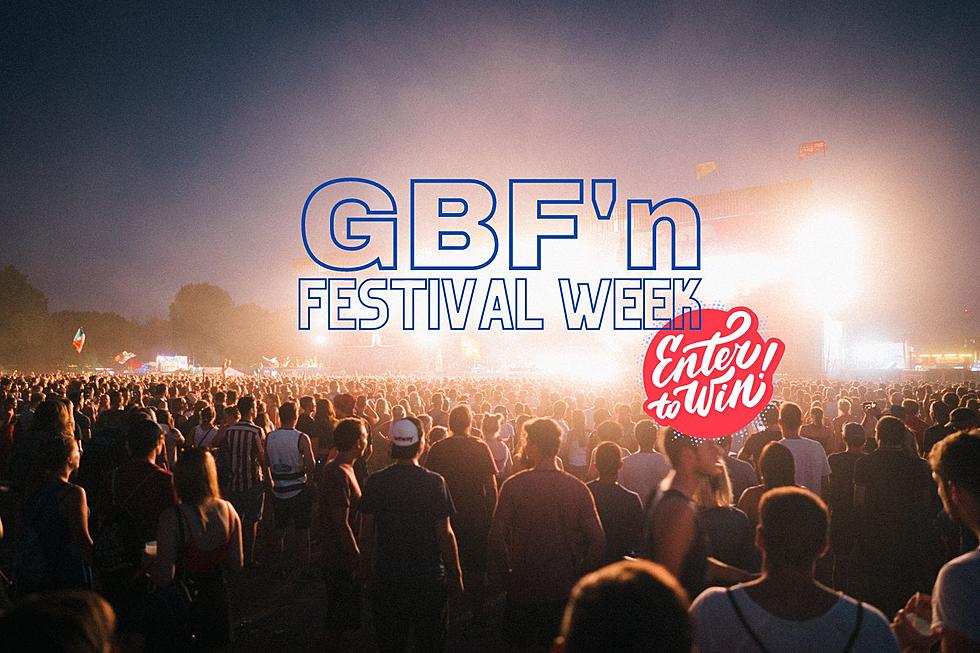
Pantera Tour Manager Guy Sykes: Getting It Done By Any Means Necessary
Meet Guy Sykes. He's a tour manager who has been in the game since 1986, getting his start working with Pantera during the pre-Cowboys From Hell days through 2001. In the years since, he's served as the tour manager for Godsmack, Marilyn Manson, Die Antwoord, Hellyeah and others, was Limp Bizkit's production manager and is currently Volbeat's tour manager.
On paper, a tour manager's job seems simple and as Sykes admits in our interview, it's essentially babysitting. All you've got to do is get the band from show to show, moving them around in "boxes" as Sykes says, from the bus to the venue to meet and greets to the stage, onward to the next city and wherever else the band wishes to go.
Strong personalities, the grueling nature of touring and excessive celebrations are circumstances that must be expertly navigated, along with any dangerous or peculiar event that may emerge and disrupt the normal routine. The babysitting is the easy part — it's the "by any means necessary" situations that define great tour managers, and Sykes has more than his share of these tales.
Learn what it takes to be a tour manager from one of the best in our interview below and follow Sykes on Twitter.
So, let's take it all the way back to 1986 when you first started tour managing Pantera. I read that you kind of fell backward into this because you were a promoter at first.
Well, I fell backward into it, well, it actually goes back further than '86. I guess the working relationship started in '86 and the friendship was more '82-'83. I was working as a bartender at this little itty bitty, teeny tiny club in Denison, Texas, called The Rock of Texas.
I decided I would try my hand at being a concert promoter in Tyler, where I was living at the time, and it really didn't work out too well. The show was great, we just didn't move a lot of tickets. Basically, I became an indentured servant, that's the way it started. I officially went to work with Pantera to pay back my debt.
It seems like at first a lot of people actually just kind of wing it and learn on the job. So, what did you do as an early tour manager, and what did you find out those roles were as you got more involved in this?
Tour management is a lot of common sense and a lot of planning. Sometimes those plans don't always work out and the greatest asset a tour manager can bring is knowledge of what to do when things don't go right.
The difference between the young guns and the veterans is what to do when things go absolutely wrong. That's basically what we're paid for. If guitars go missing, if the singer is injured or needs to see a doctor or is sick, or somebody loses their passport and you're traveling the next day, a terrorist attack — that's where the tour manager comes in. You may not like the decision that the tour manager makes, but the tour manager has to make those decisions for the good of the band and for the safety of the band and the crew.
I've gone through 9/11 on the road, I've gone through both Iraq wars, overdoses, family deaths, all sorts of stuff. You learn from experience and watching others. There's a whole host of people that I've watched over the years and try to absorb and learn from them.
I've got a whole host of people that I depend on to do certain things because one of the pitfalls, that I think people fall into is that you have to do it all yourself. And you can't, it's impossible. Something's going to fall through the cracks.
You mentioned something like a passport getting lost and you have to go to another country, and I hear from a lot of people in the industry that you just need to get the job done by any means necessary. What "by any means necessary" situations have you found yourself in?
One of the most creative things that we ever did was Pantera were playing at Ozzfest. We had a day off the day before and Rex and Darrell decided to fly home to Dallas to do some things before Ozzfest and we were playing in Chicago at Tinley Park. As happens in Texas in the summertime, we get pop-up thunderstorms in the afternoon.
They played Russian roulette as far as flying on day of show, which is one of the cardinal sins in touring. You try not to fly talent on the day of show unless there's plenty of backup flights.
Their plane was delayed in leaving Dallas, and they're calling me, "My God, what are we going to do?"
We're looking at things and O'Hare from Tinley Park, normally a 45 minute, maybe an hour ride. Well, it was a Friday afternoon in the summertime, and it was rush hour, so there was absolutely no way that they were going to make it with the time that the flight was going to land in O'Hare.
This is pre-9/11, so a lot of this stuff couldn't happen now, but they landed with the band's security director O'Hare. I'm brainstorming with the local promoter, and I'm like, "How are we going to get these guys here?" Because if we don't, they're going to cancel and we lose tens of thousands of dollars for playing. We found a helicopter pilot — the guy that does the traffic reporting.
He had to do the 5:00 traffic report, he needed to be back to do the 6:00 traffic report or whatever. Well, we were able to get the people at American Airlines, because somebody had a friend that worked at American Airlines at the time, to meet them at the gate, put them in a van, take them over to the other side of the airport where the private jets are and the helicopters are, get the guys in a helicopter and fly them to Tinley Park.
There was a golf course next door, they cleared the green, landed on the green and jumped in the runner van. We had a little police escort, brought them back over, but of course, they didn't want to land right away, so Darrell and Rex buzzed the crowd a couple of times in the helicopter before they landed.
I imagine the traveling the world and you have to have an understanding of the different laws in different countries so nobody goes out and makes a mistake and does something that maybe they didn't realize was against the law.
You just have to use common sense. If you're going to get arrested for it in America, you're probably going to get arrested for it anywhere else in the world. Some of the Asian countries such Singapore and Japan are a little more strict on things. Japan is super strict on drugs. Singapore, it's the death penalty.
You've worked with a lot of challenging personalities. Logic has to be completely thrown out the window if you're not dealing with a logical situation. So, how do you deescalate a bad situation and really tell this person that, yes, what you're saying is the right thing to do, even though it may not be what they want?
You have to disseminate what is a critical situation and what's not. Because somebody doesn't have the correct cellphone charger at the proper time of the day isn't something to get worked up about. You can either fight with that person or just go to the store and buy another phone charger. Get the problem solved as quickly as possible, I guess, is the best word.
I had an artist that would get bent about the cellphone charger thing. So, what did we do? We bought about 20 cellphone chargers so we had one when he or she would have left it in the last hotel room or a dressing room or whatever, so we always have a drawer full of cellphone chargers. It didn't matter that they were $40 a piece, it was better to spend the money to mitigate a meltdown than it was to not have them on hand and have he or she destroy a dressing room over not having a cellphone charger.
Now, if it's something where they're putting themselves or others in danger or it's a life threatening situation, then you just put your foot down and you say "no." At the end of the day, you're responsible for everybody else around you. So, if the artist wanted to do something that was going to harm him or someone else, then you have to put your foot down regardless of what the consequences may be.
Being on tour with Marilyn Manson, I'm sure you've encountered protests. Now, how do you deal with a situation when you feel that your artist might be in danger, or there is some kind of tension, like a protest at a show. Do you change your protocol, what do you do there?
You have to evaluate the situation. In America you have the right to protest, but any time that a situation escalates to where the artist is in danger, you have contingency plans. A lot of that falls on the security director for whichever particular artist that may be. You always have to be prepared for any kind of civil unrest.
Now, with what's happened in Paris, the Pulse nightclub, Las Vegas, all of the other shootings that we've had, we really have to be cognizant about security. It's a big, big, big thing. A lot of what we do now are VIP meet and greets and things like that, so it’s a fine line to being overly protective and still being accessible to fans.
I don't call protests civil unrest. It's fun to watch people exercise their rights to do things, and when I was with Manson for the tours that I was with him, protests were very low key. We're more worried about the nut jobs coming in to shoot up the place than we are about somebody protesting music.
What do you do if a band doesn't get paid?
That doesn't happen anymore. Back in the day it did, but everybody's now so corporate. There's still some people that occasionally, a promoter will have an issue with a payment, but it gets resolved in a matter of days.
For the young guns that are out there, that's the first thing you do when you get there, especially if you're doing a bar gig or whatever it is — a small club gig, just get in there and get your money. Get your money before the band gets off stage because it's like giving the keys to your car if you're selling it to somebody and not getting the check for it.
Advice for the smaller tour managers that are out there — if you're playing a show and you don't feel comfortable, make sure you get paid before you put your band onstage or right after you put the band onstage. If they refuse to pay, you can take the band offstage. And then you have some leverage to negotiate or resolve the problem. If you wait until after the band has completed their service and you're still empty handed, it takes a while to get things resolved.
What needs to be prepared in advance of the tour?
We'll discuss a tour with management, the band, myself, production management, and we'll try to get a lay of the land. It's like, "Okay, so, the record's going to be released in May, let's say, these are all arbitrary dates, the band's in the studio and they're going to start touring in June..."
So, September the previous year, we'd start looking at what that tour is going to look like — how big is the tour, what kind of rooms are we going to play? Once we get that, then we go to the band and go, "Okay. What would you like to do as far as the show goes? Do you want pyro, do you want lighting, do you want a fire-breathing dragon?"
Then we start putting together budgets and going through all of that. Once everybody's agreed to, "Okay, it's going to cost this much. This is how much we're projected to make at the end of the tour," everybody signs off on it, then we start nailing down vendors and then signing contracts for production. We book hotels, we book flights, we book crew. And then all the planning goes into that.
We'll get a final itinerary of the shows that we're playing. Again, all the travel, all the crew people, all the trucking, all of that gets put together and then we're out the door and we go.
What band, present day or in history, would be the most challenging to manage on tour? Heads up — if you say Motley Crue I'm going to make you pick another one.
They're all challenging in their own certain ways. Babysitting is basically the job.
I just think it would be interesting to work for just about anyone. You may choose not to work for them again. It comes down to a judgment. Can you put up with X, Y or Z for the amount of money that they're paying you? If the answer is yes, then you continue to work for them. If the answer is no, if you're quality of life is not what it should be when you're working for that person, you walk away. That's happened to me before.
The Best Metal Song of Each Year Since 1970
More From WGBF-FM










